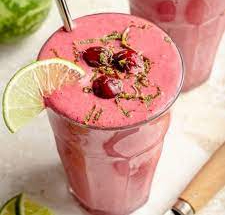What is the proper diet should follow for fitness?
What is the proper diet should follow for fitness? A proper diet for fitness should focus on providing the right balance of macronutrients (proteins, carbohydrates, and fats), micronutrients (vitamins and minerals), and hydration to support energy, muscle growth, and overall health. Here’s a guide to follow:
Protein
- Importance: Supports muscle repair and growth, especially after exercise.
- Sources: Lean meats (chicken, turkey), fish, eggs, dairy (Greek yogurt, cottage cheese), legumes (lentils, chickpeas), tofu, and protein supplements (whey, plant-based protein powders).
- Intake: For fitness, aim for around 1.2-2.2 grams of protein per kilogram of body weight per day, depending on your activity level and fitness goals.
Carbohydrates
- Importance: Provide energy for workouts and aid in recovery.
- Sources: Whole grains (brown rice, quinoa, oats), fruits, vegetables, sweet potatoes, and legumes.
- Intake: Include complex carbohydrates before workouts for sustained energy and simple carbohydrates post-workout to replenish glycogen stores. Carbs should make up around 45-65% of your daily caloric intake.
Fats
- Importance: Essential for hormone production, joint health, and long-term energy.
- Sources: Avocados, nuts, seeds, olive oil, fatty fish (salmon, mackerel), and coconut oil.
- Intake: Aim for fats to be 20-35% of your total daily calories, focusing on healthy fats and minimizing trans and saturated fats.
Micronutrients
- Importance: Vitamins and minerals support various bodily functions such as metabolism, immune function, and recovery.
- Sources: A variety of fruits, vegetables, nuts, seeds, whole grains, and lean meats. Consider supplements like multivitamins if needed.
Hydration
- Importance: Vital for maintaining energy levels, regulating body temperature, and supporting muscle function.
- Intake: Drink water regularly throughout the day. Aim for 2-3 liters of water daily, and more if you’re active or in hot climates.
Meal Timing
- Pre-Workout Meals: Focus on carbohydrates and protein for sustained energy. Example: Oatmeal with fruit and a protein source.
- Post-Workout Meals: Prioritize protein and carbohydrates to aid recovery and muscle repair. Example: Grilled chicken with sweet potato and vegetables.
Balanced Meals
Example Plate:
- ½ plate of vegetables (broccoli, spinach)
- ¼ plate of lean protein (chicken breast, tofu)
- ¼ plate of complex carbohydrates (quinoa, brown rice)
- A healthy fat source (olive oil, avocado)
Adjust for Goals
Weight Loss: Focus on a calorie deficit with high protein intake to preserve muscle. Consider reducing carbohydrates and fats slightly, depending on your caloric needs.
Muscle Gain: Aim for a calorie surplus with a higher protein intake and adequate carbohydrates to fuel workouts and recovery.
Tracking your food intake through apps or consulting a dietitian can help fine-tune your diet based on your specific goals and needs.


